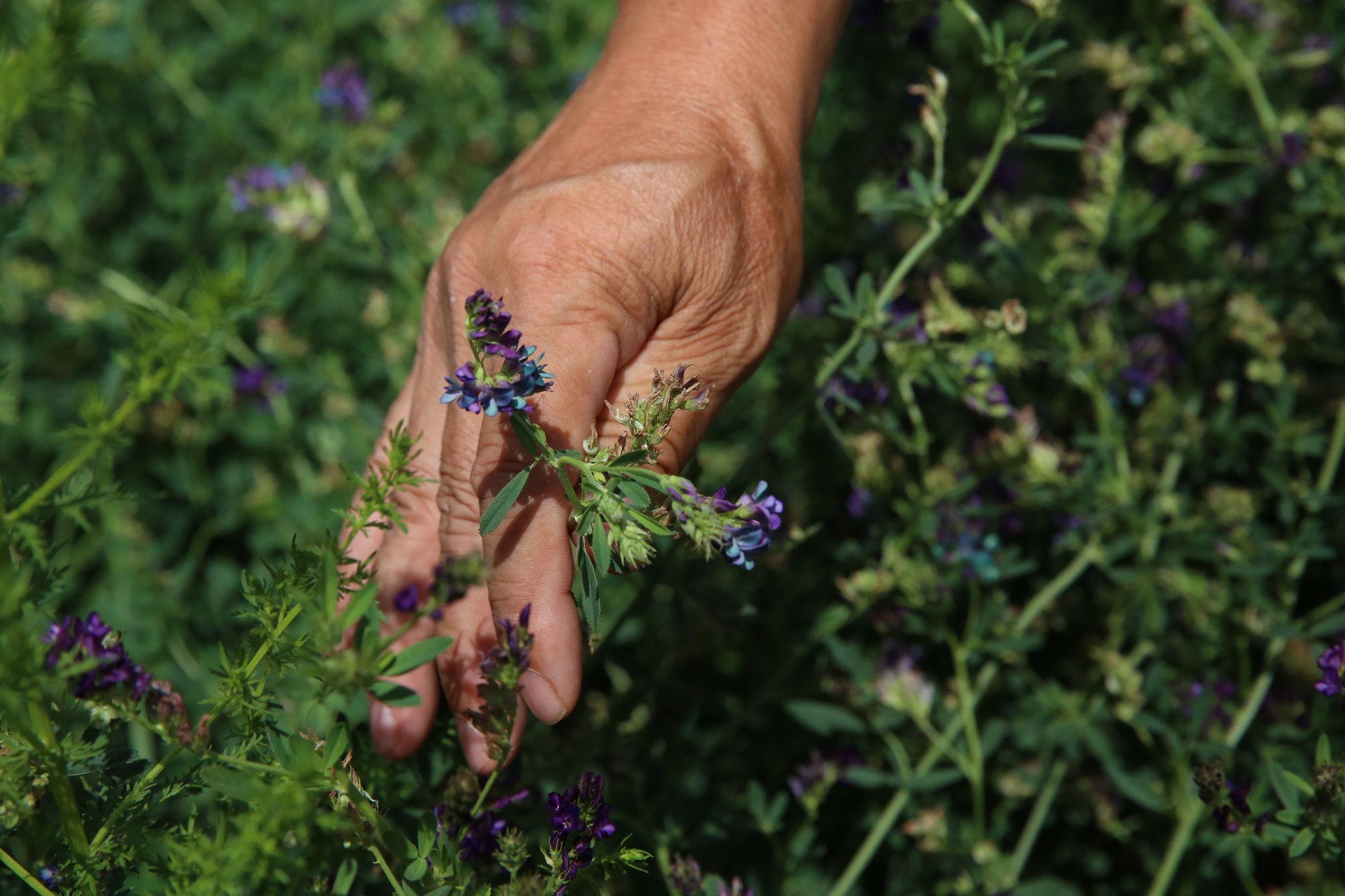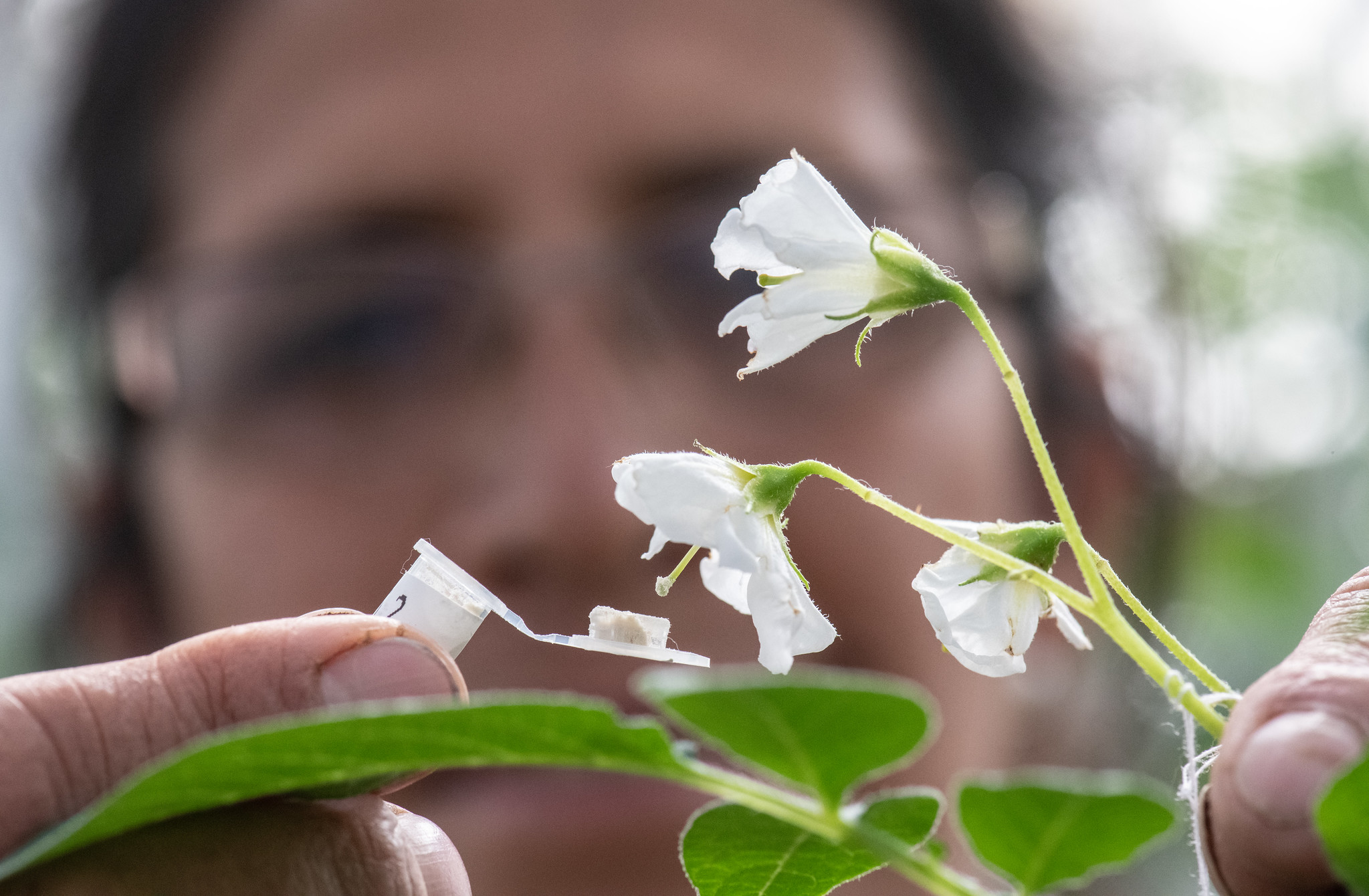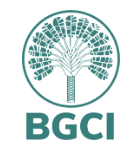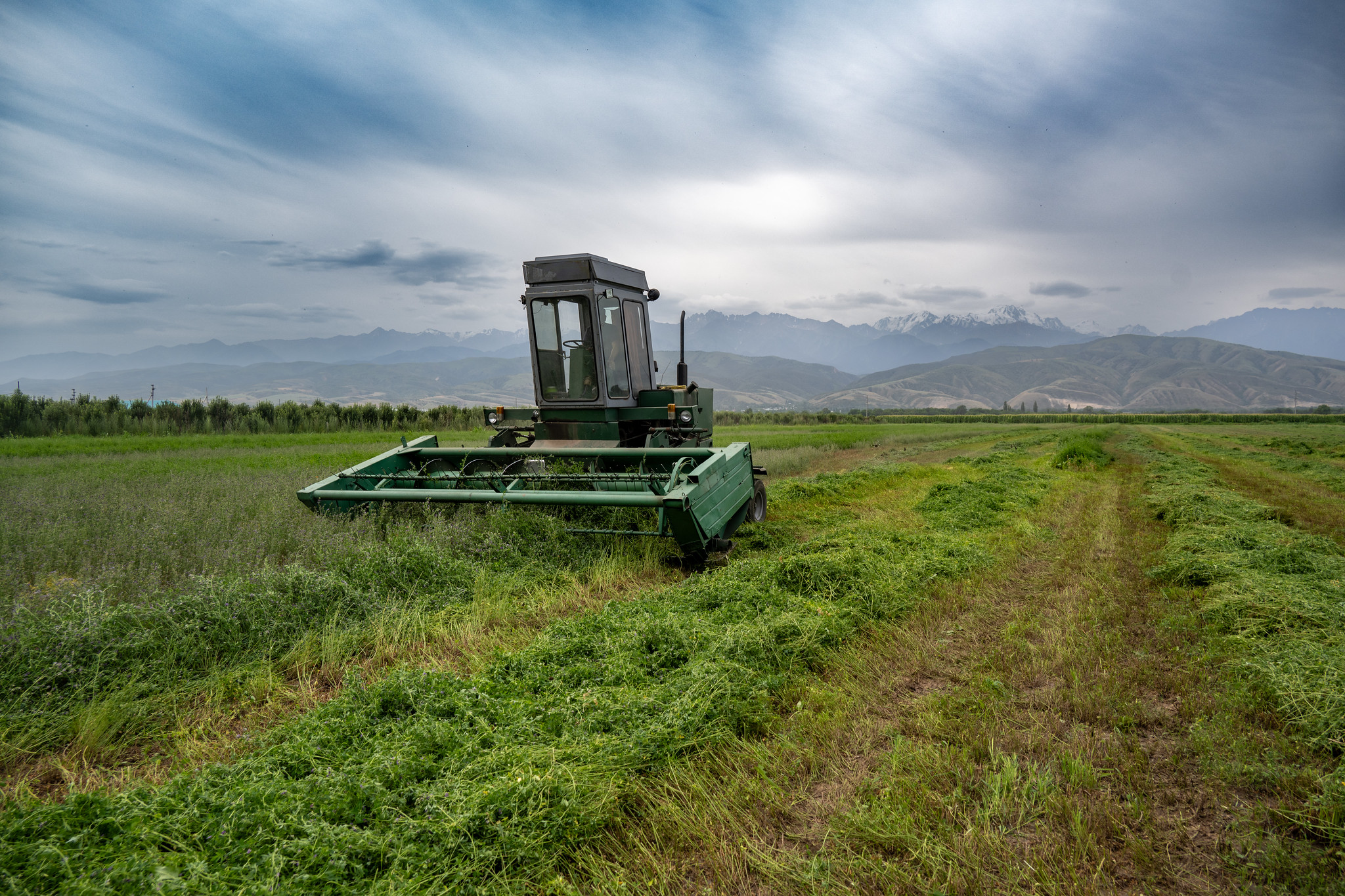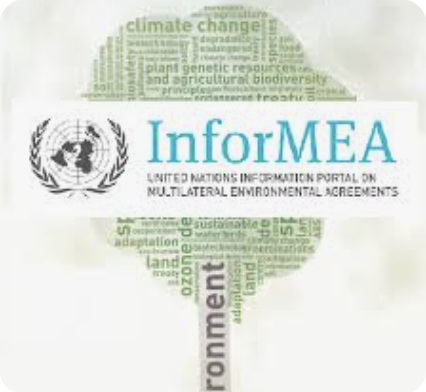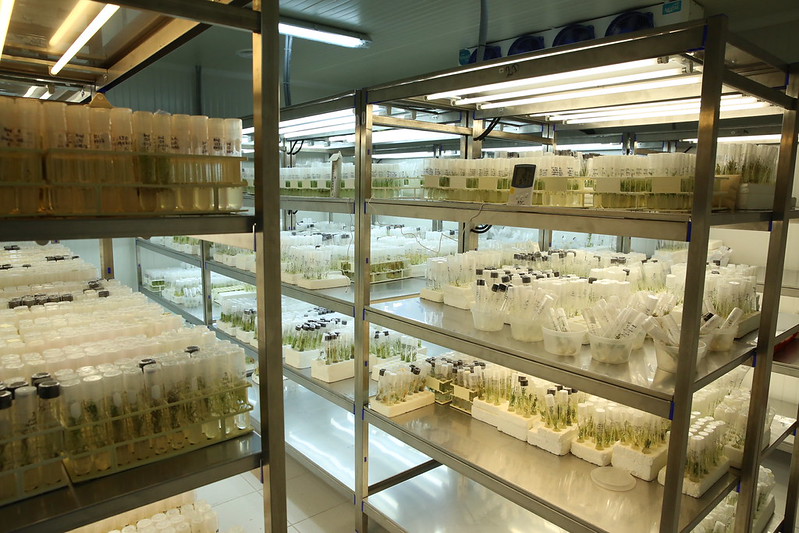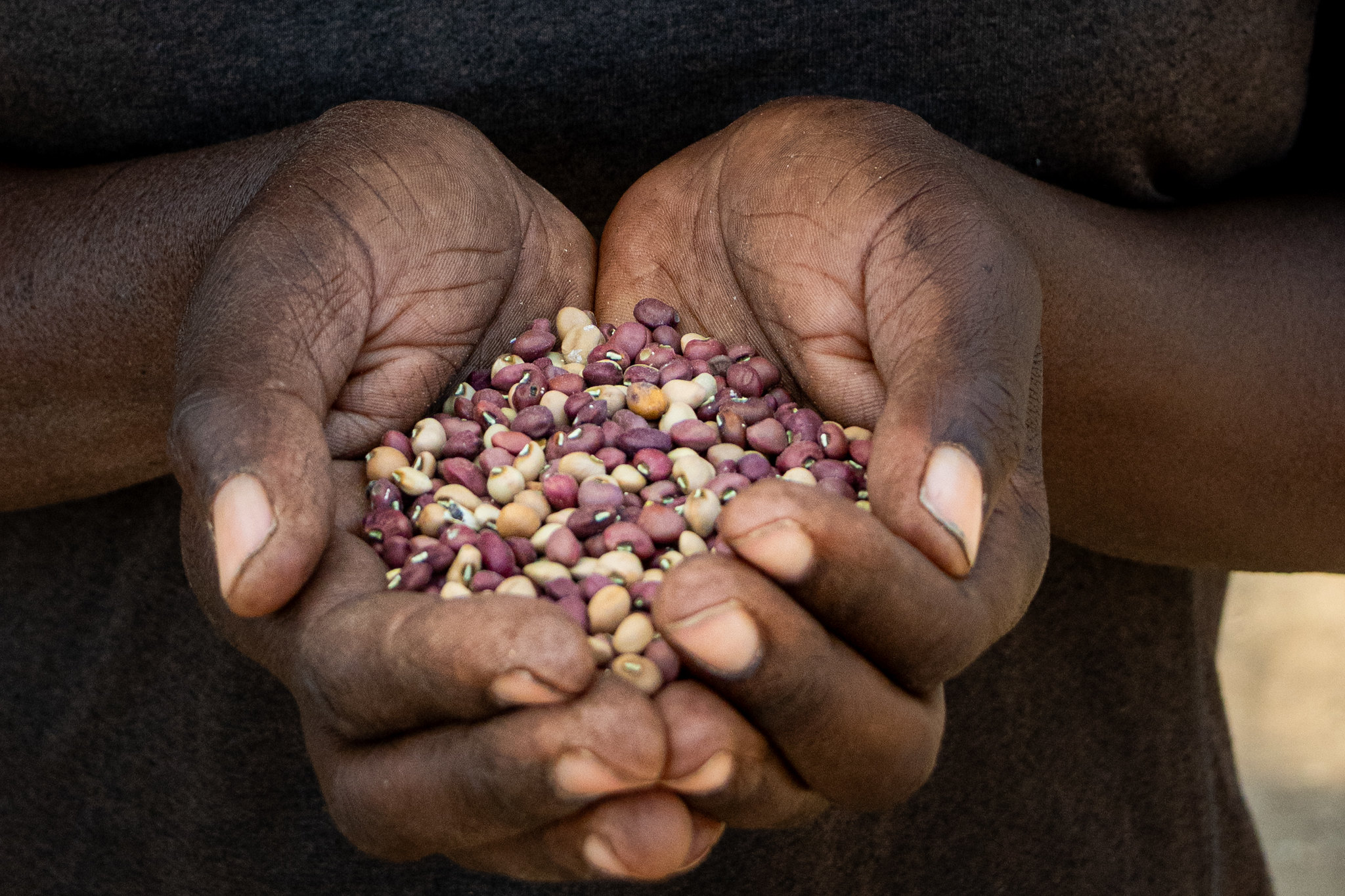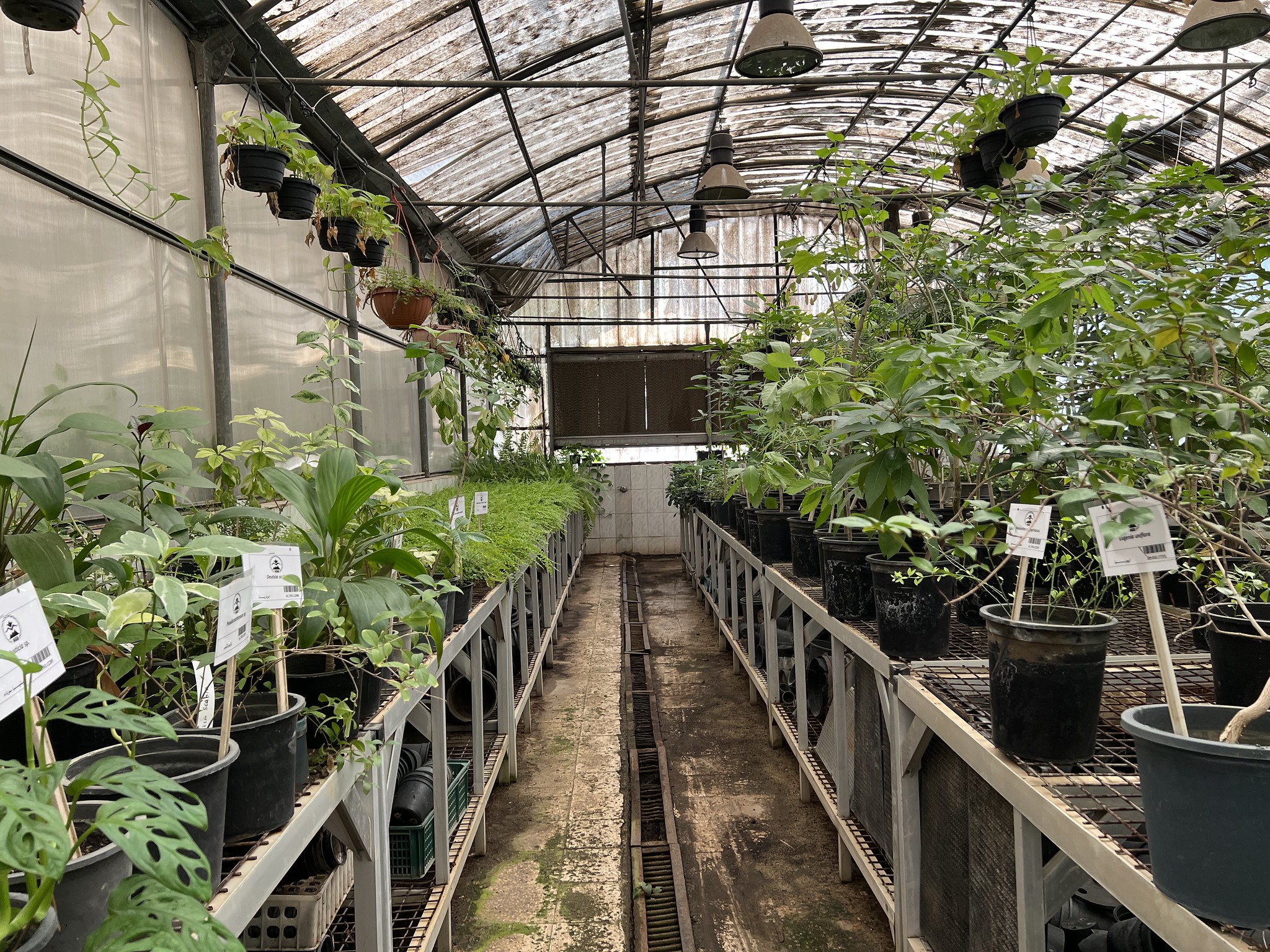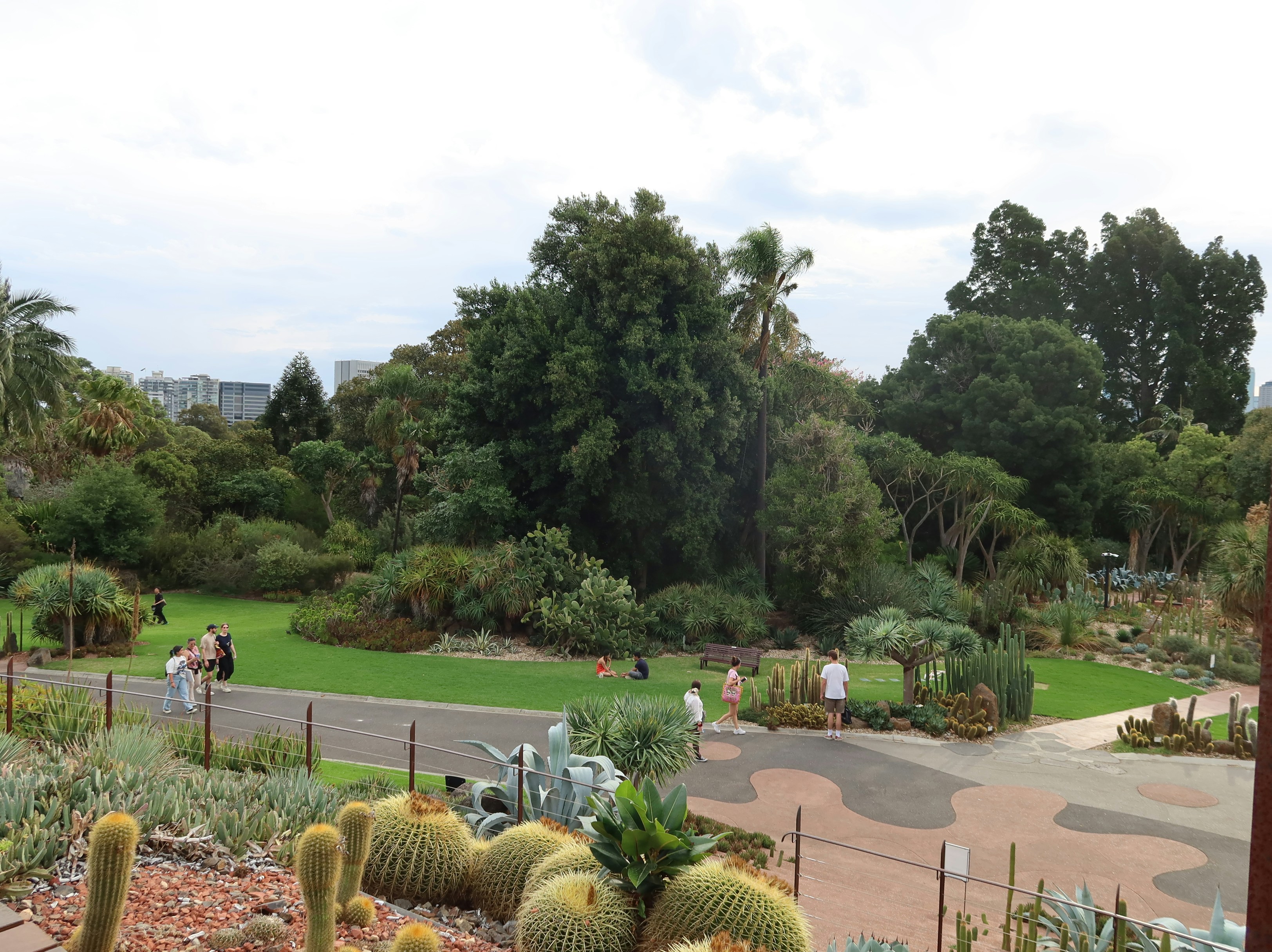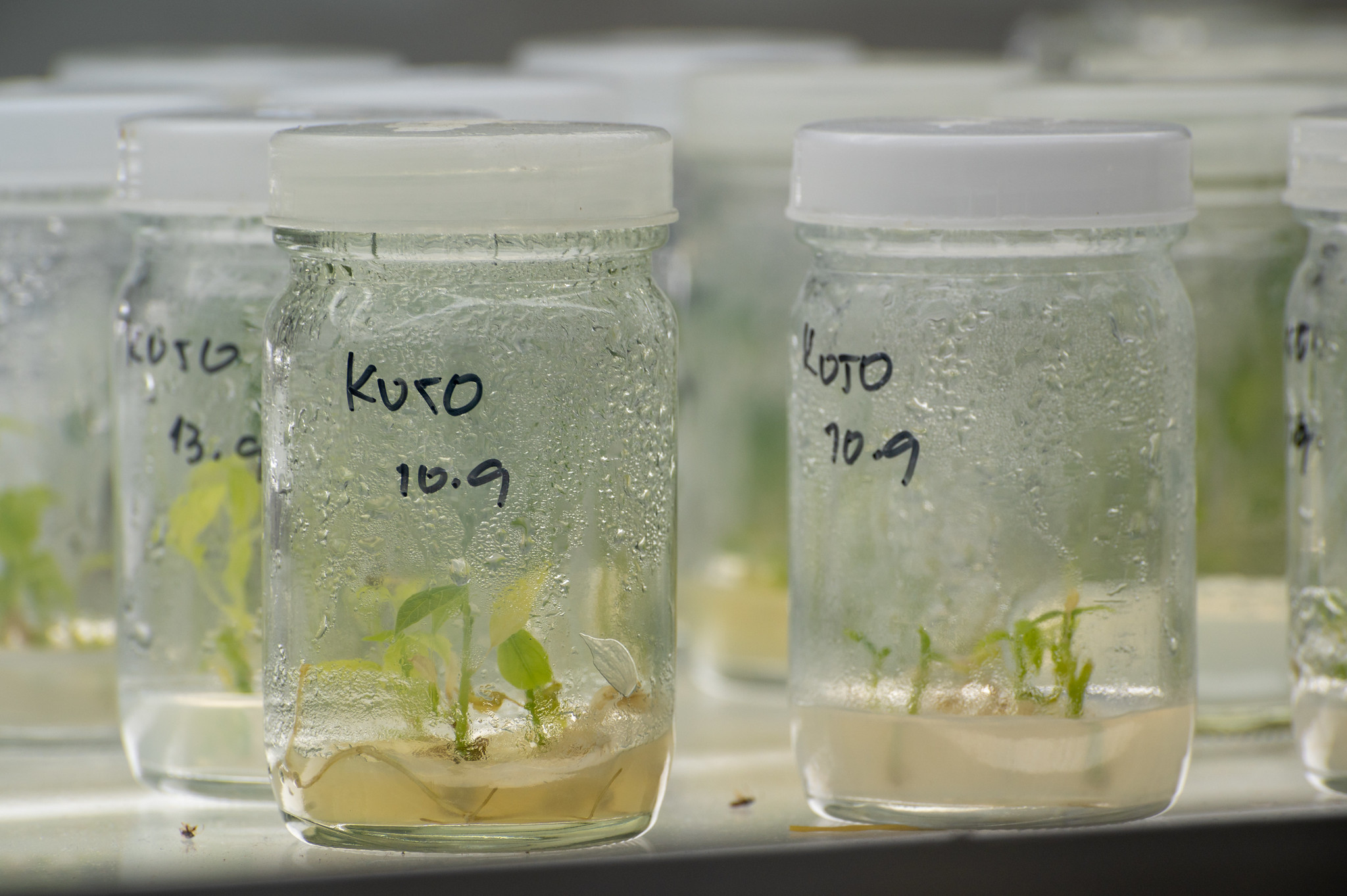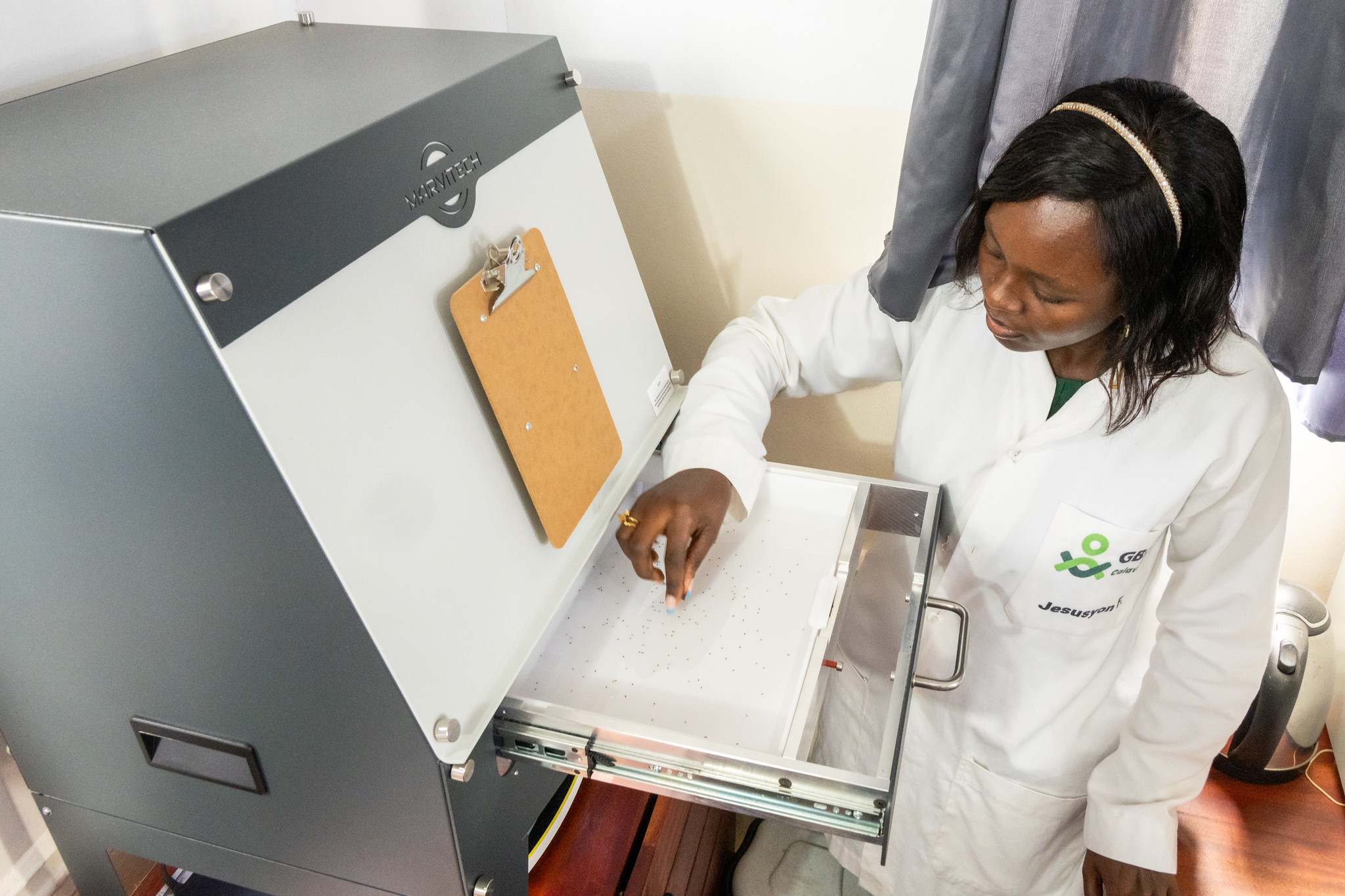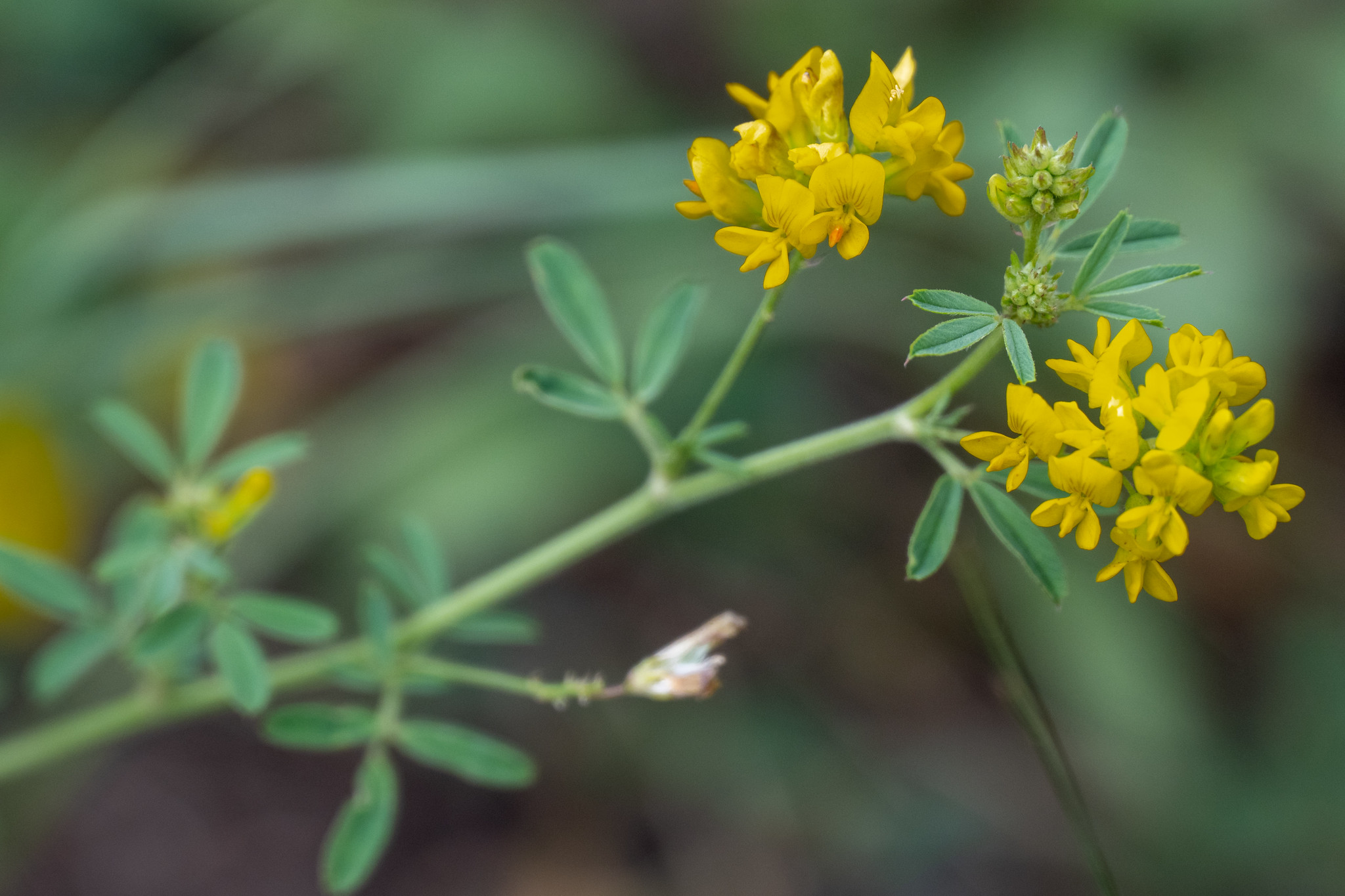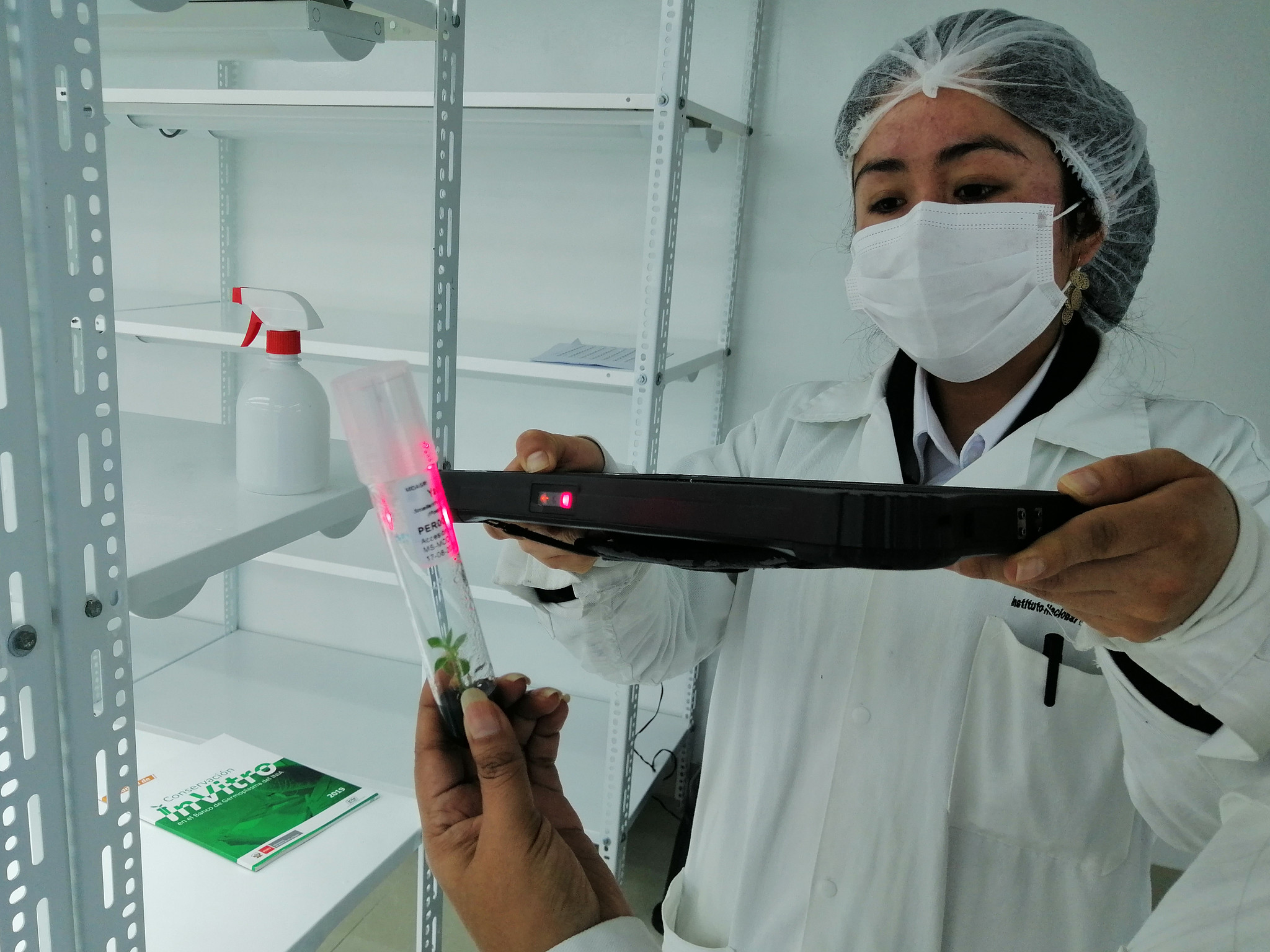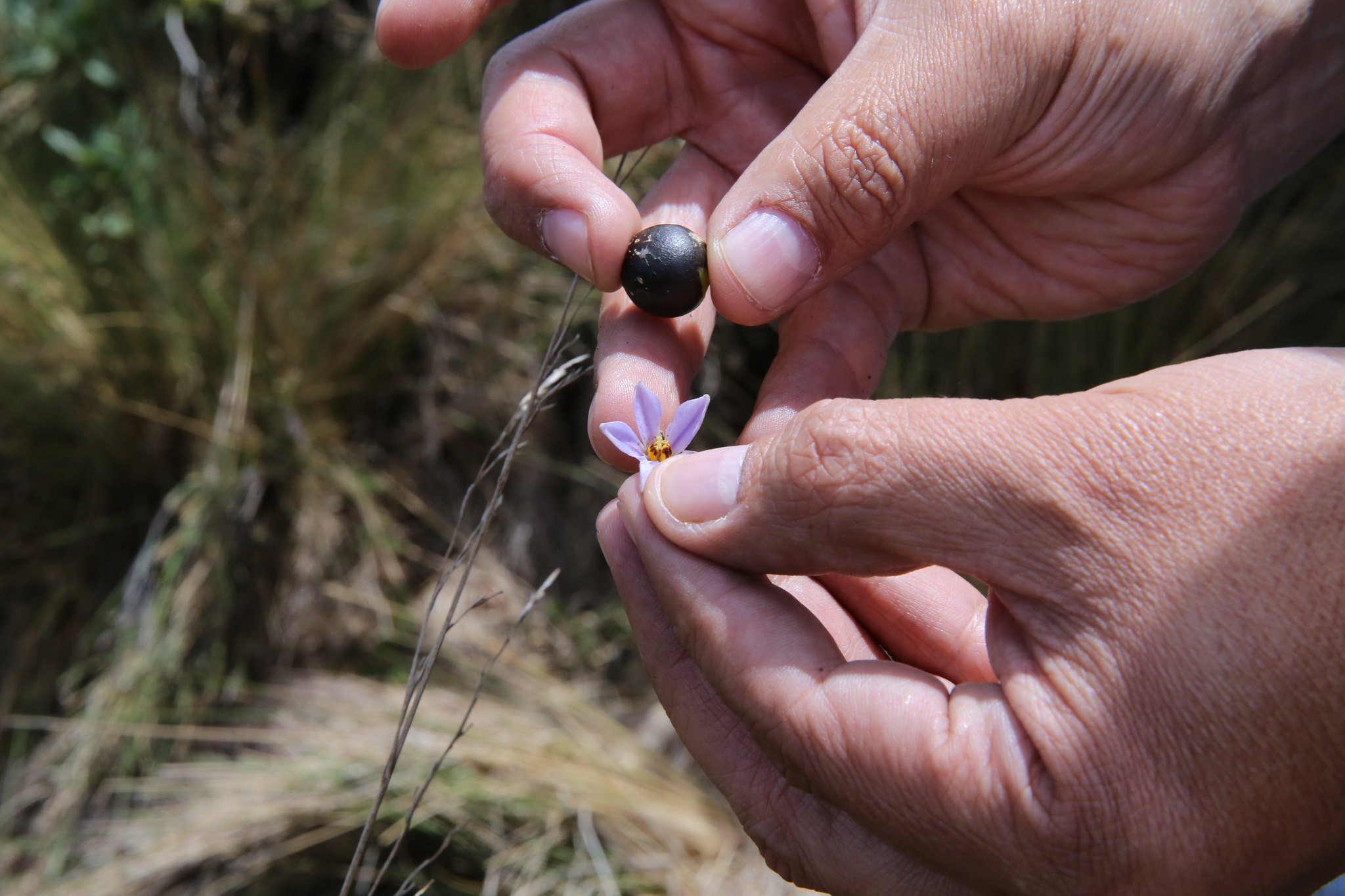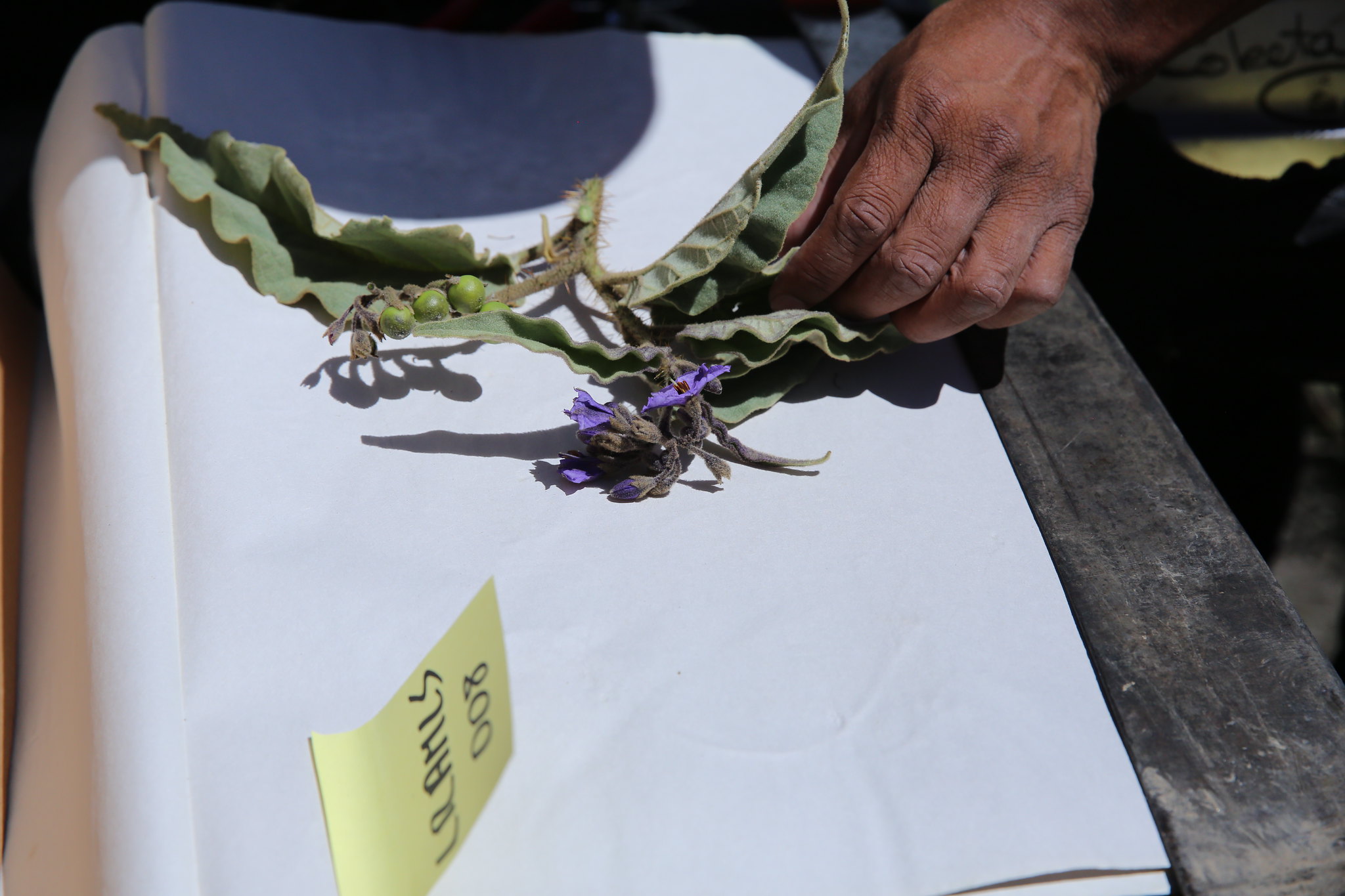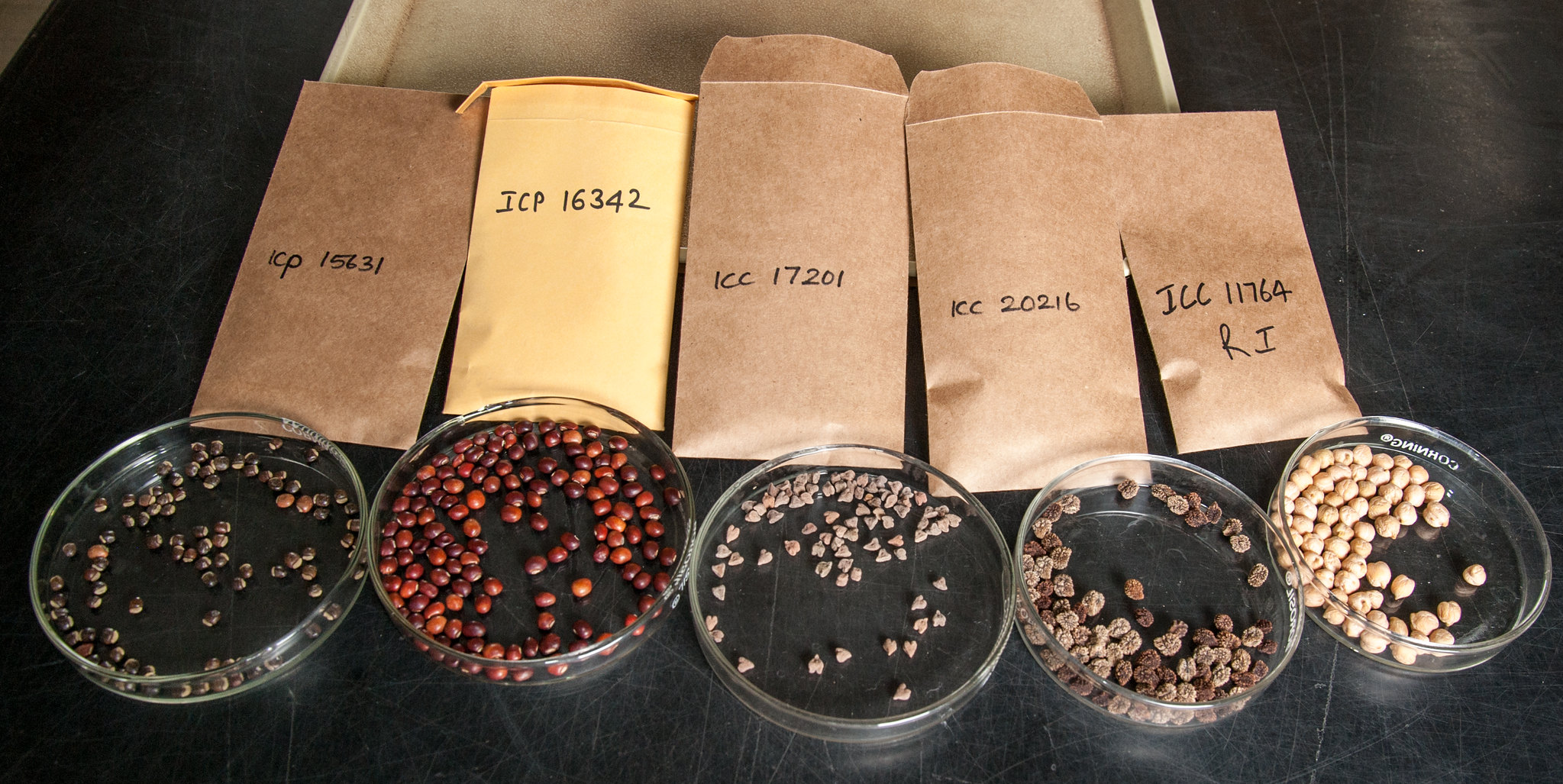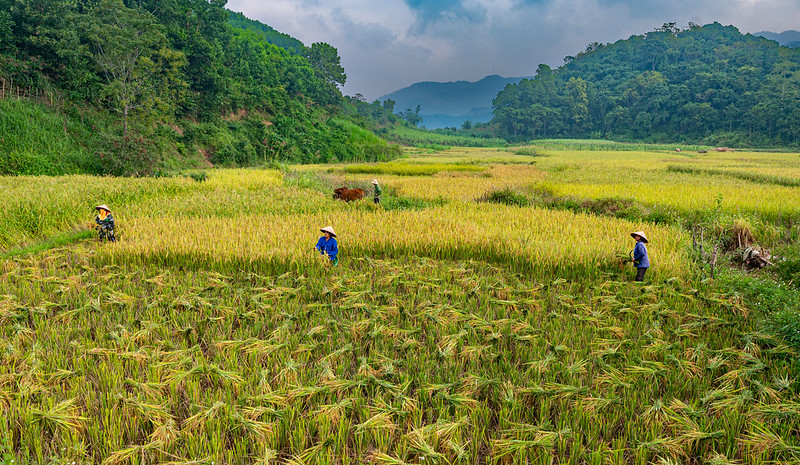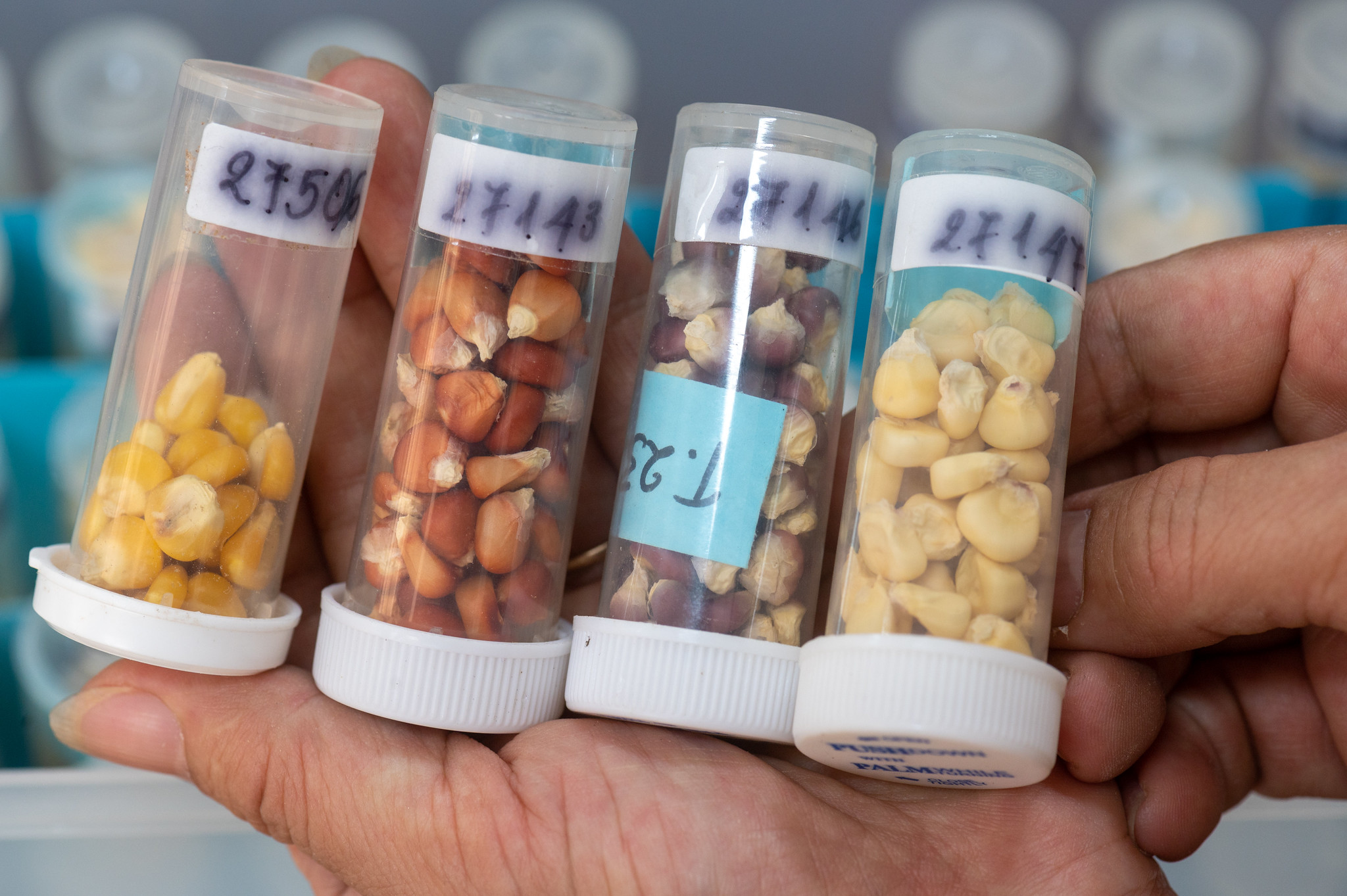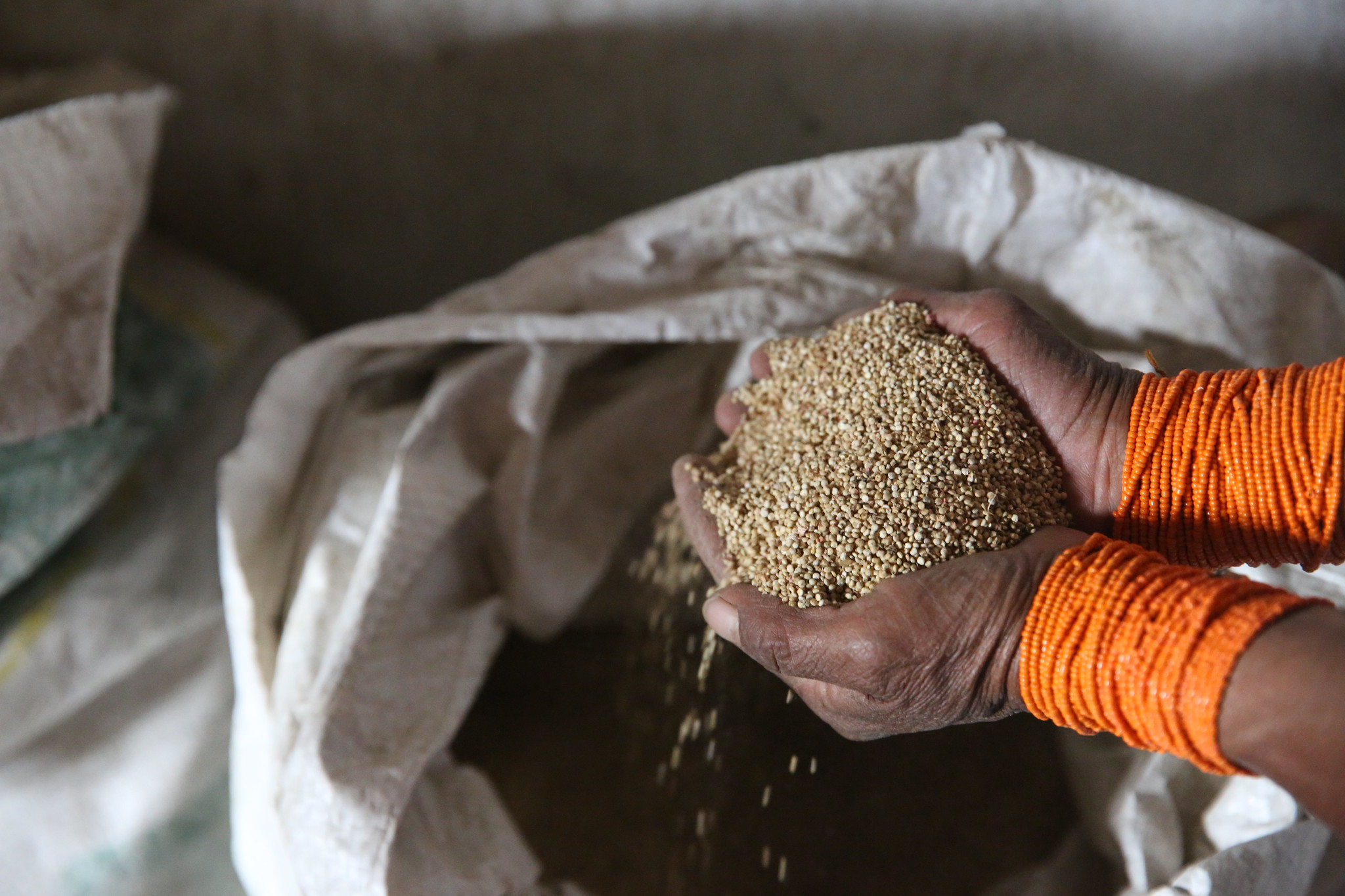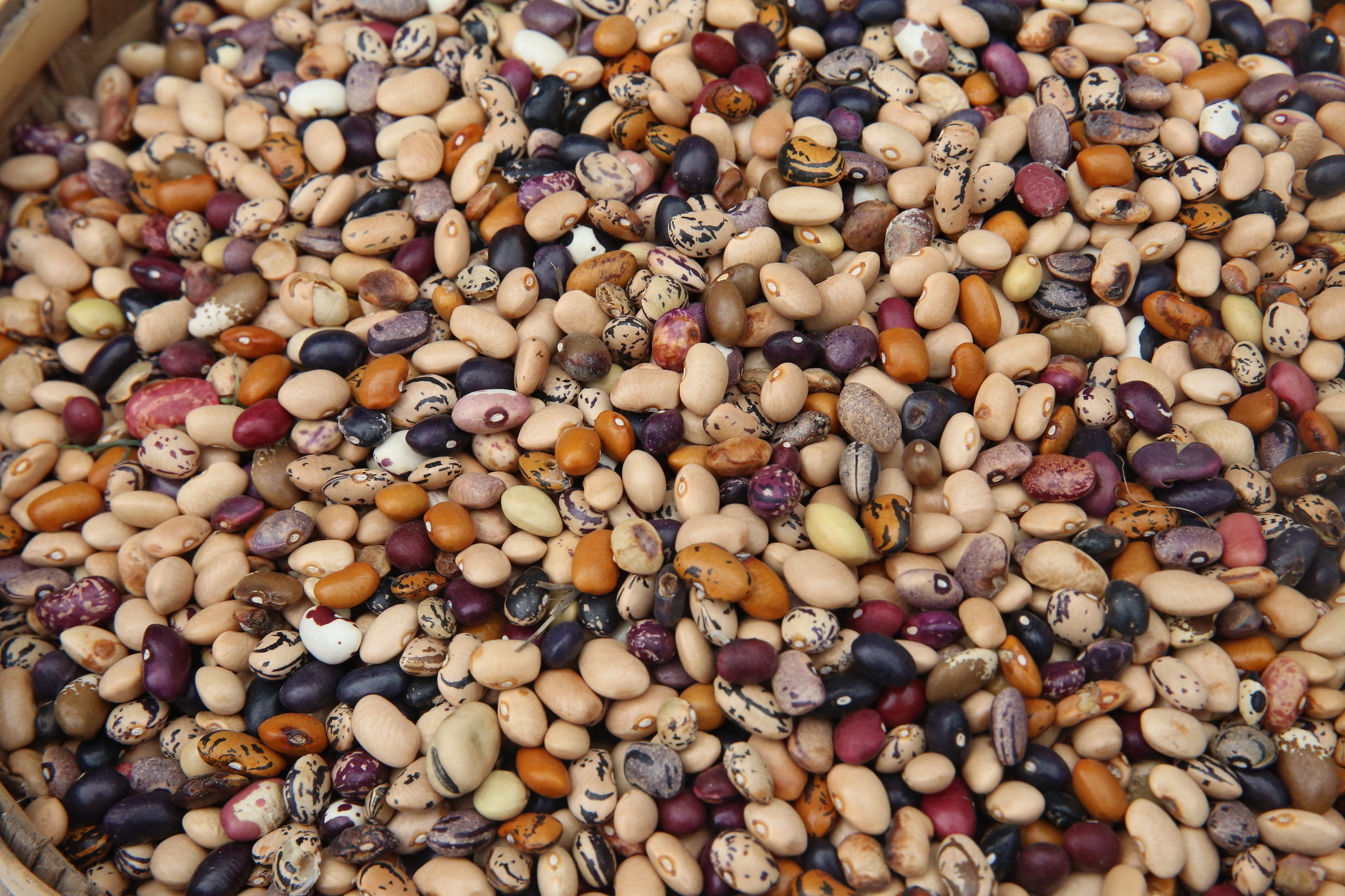Courses
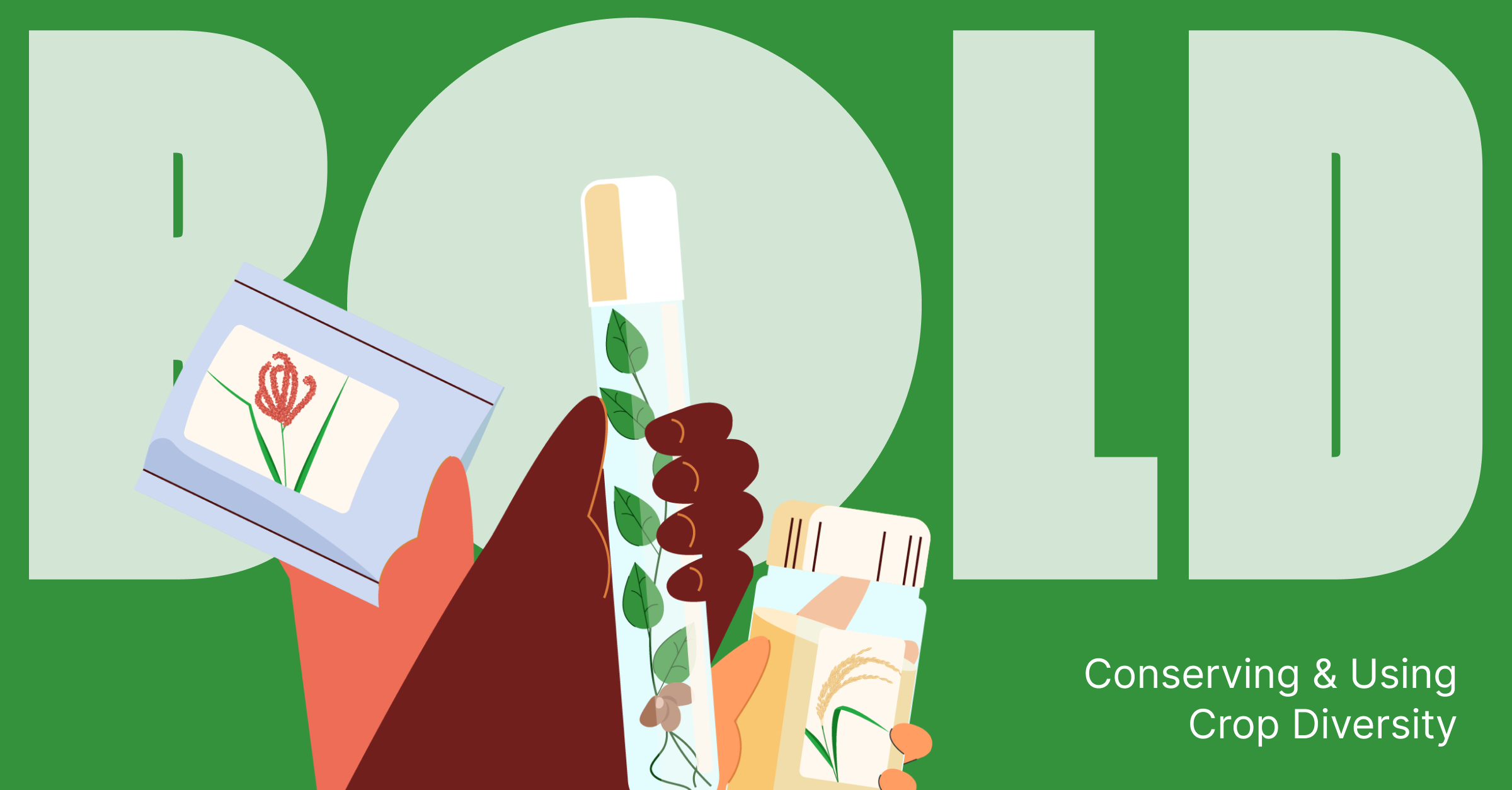
Conserving and Using Crop Diversity
The Crop Trust online experience – Conserving & Using Crop Diversity – is an interactive website where you can explore how the crops we eat are conserved, studied and used to build a more secure food future.
This introduction to crop diversity conservation and use is colorful, easy to navigate, and full of stories, games and videos that bring science to life.
What You’ll Find
Ever wondered what the difference is between a landrace and an elite variety?
Or who a pre-breeder is, and why their work matters?
This site explains it all – in a simple, visual way, and the way you use it is entirely up to you.
- Travel back in time to discover how seeds were first saved and used by breeders.
- Play a game where you help farmer Hassan create a new wheat variety that can withstand heat waves.
- Think you’re fluent in crop diversity? Then go ahead and test your knowledge.
What do Anna Backhaus, Chrispus Odouri, Shivali Sharma and Benjamin Kilian have in common? They are scientists working with farmers around the world to develop crops that can survive drought, heat and disease. They have one goal: to secure the future of food.
Discover how crop diversity connects us all – Conserving & Using Crop Diversity
Share your thoughts and experiences with us media@croptrust.org and on social media. Don’t forget to tag the Crop Trust!
This interactive online experience was launched with support by the Biodiversity for Opportunities, Livelihoods and Development (BOLD) project funded by the Government of Norway. The BOLD project aims to strengthen food and nutrition security by helping genebanks conserve and use crop diversity more effectively.
 Crop Trust Self-Paced Free
Crop Trust Self-Paced Free 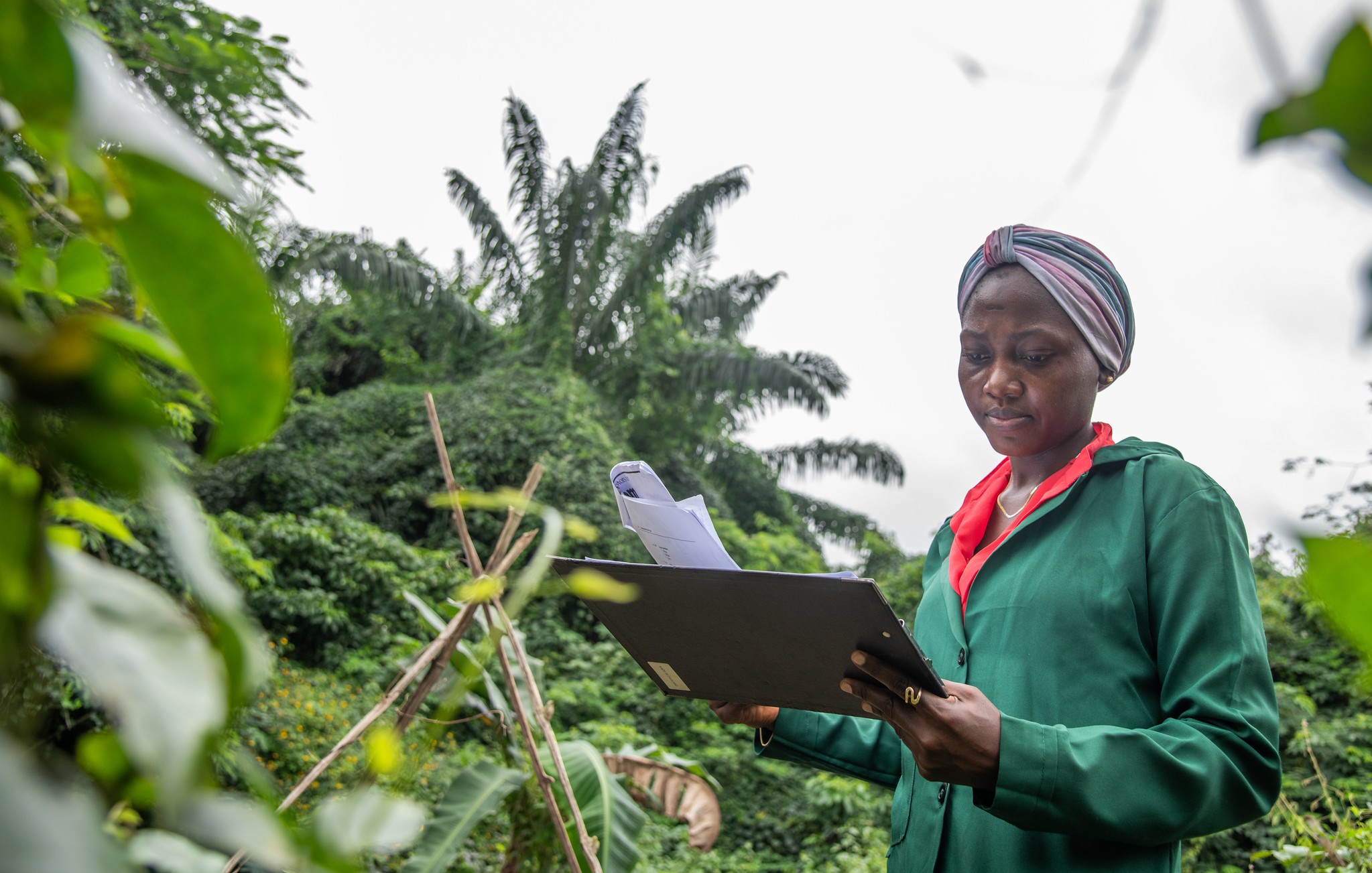
Global Crop Conservation Strategies
This e-learning course introduces you to global crop conservation strategies, explaining how they are developed and how they support the conservation and sustainable use of plant genetic resources for food and agriculture (PGRFA). It also covers crop coverage assessments, the identification of gaps in global collections, the data and methods used for gap analysis, and how to apply the results to strengthen conservation efforts.
This course is supported by the Treaty and the Crop Trust with funding from the German Federal Ministry for Agriculture, Food, and Regional Identity as part of the project "Mainstreaming Global Crop Conservation Strategies in Plant Treaty Processes”.
 FAO elearning Academy Self-Paced Free
FAO elearning Academy Self-Paced Free 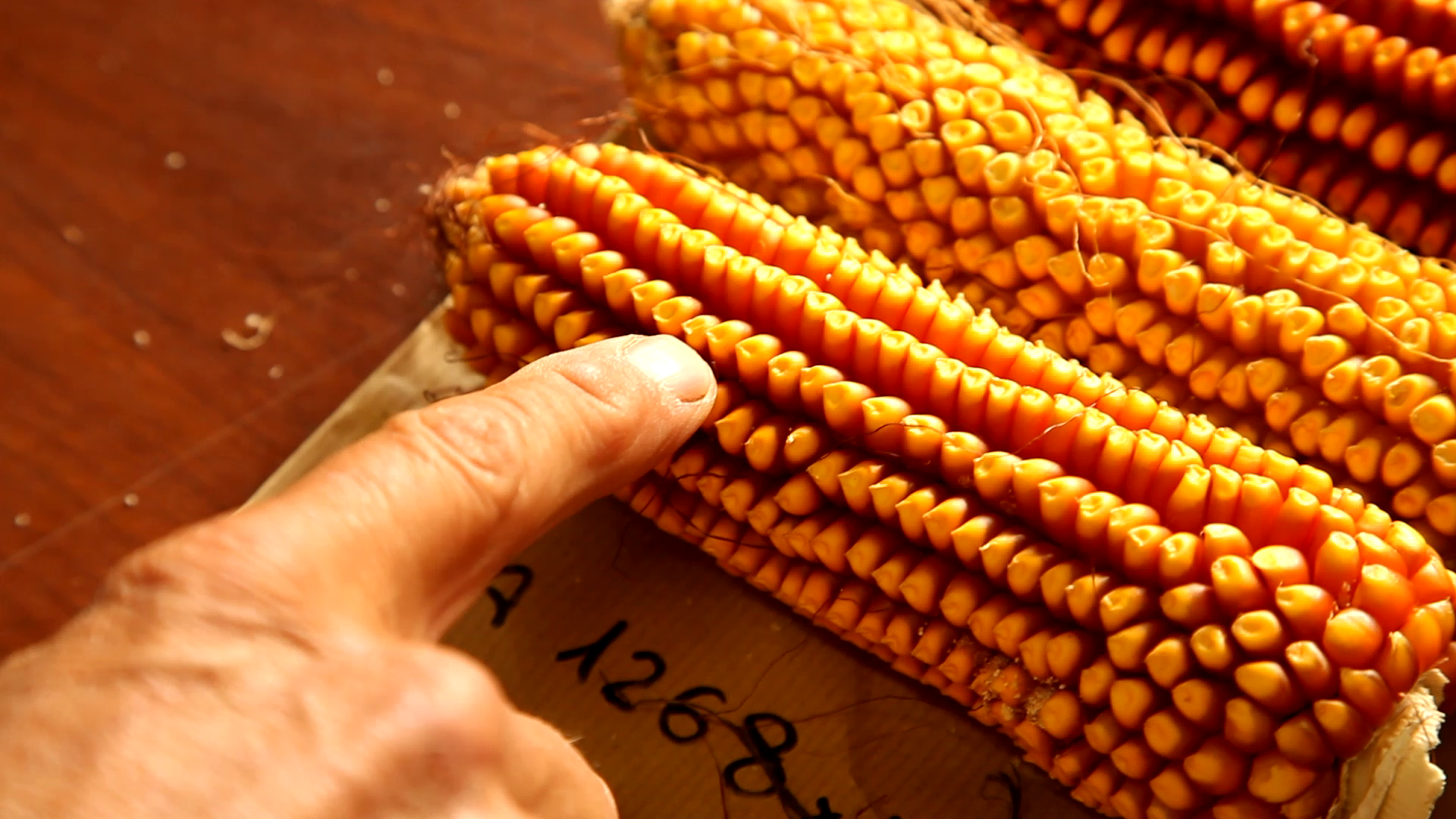
Organic Plant Breeding: Module 1
The LiveSeeding project offers 5 training packages, comprising 25 modules on organic breeding and seed production. These include online and on-site sessions. The materials provide an in-depth overview of the knowledge, concepts, strategies, tools and opportunities of organic breeding, and are tailored to a diverse range of trainees, including organic farmers, students at various levels (secondary school, Bachelor's, Master's and PhD), scientists, seed producers, organic breeders and others involved in organic and agroecology-oriented farming who are interested in organic seed systems.
Link to website: https://liveseeding.eu/trainings-summer-school/
Link to repository on ECO-PB website: https://www.eco-pb.org/trainings.html
 LiveSeeding Self-Paced Free
LiveSeeding Self-Paced Free 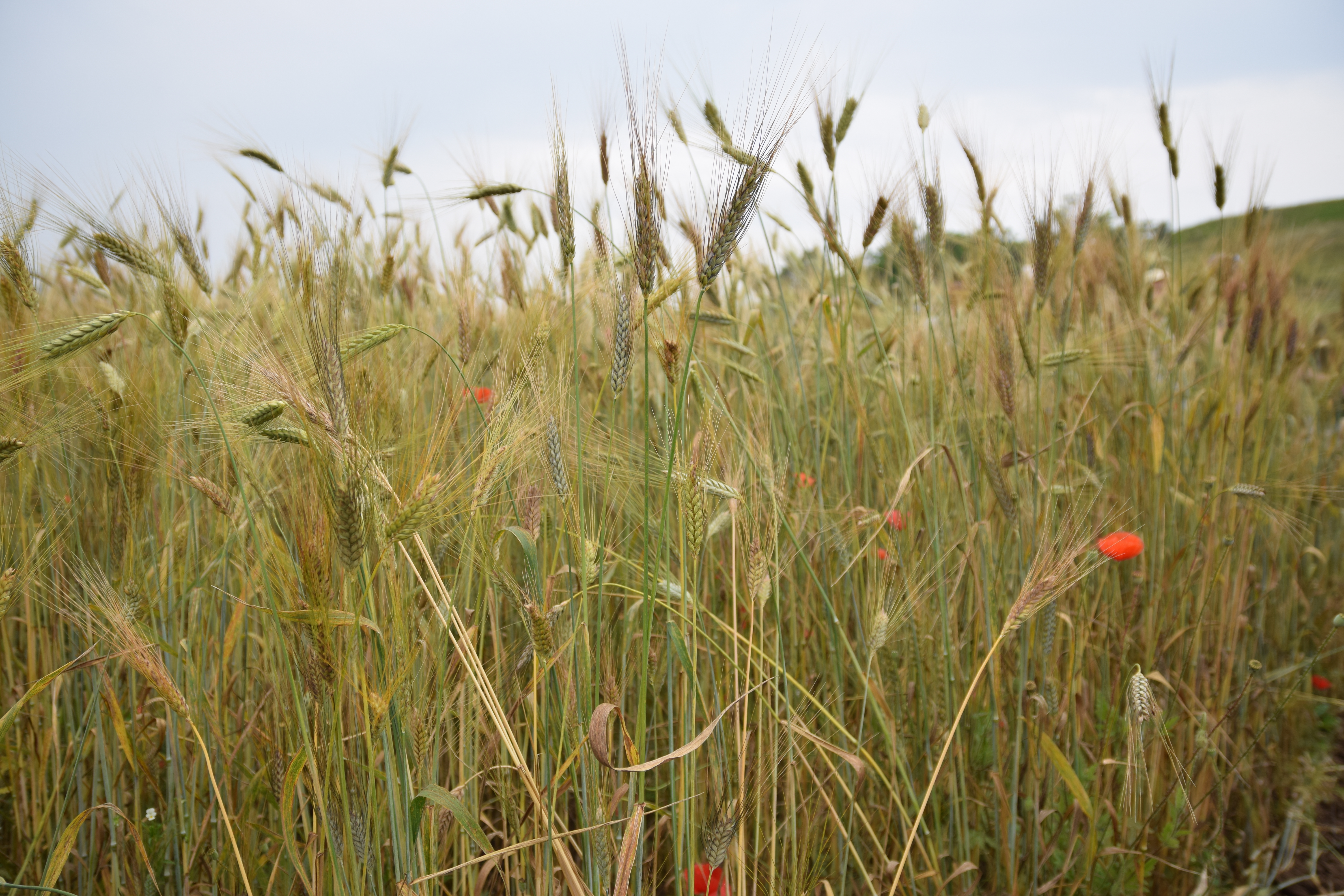
Organic Plant Breeding: Module 2
The LiveSeeding project offers 5 training packages, comprising 25 modules on organic breeding and seed production. These include online and on-site sessions. The materials provide an in-depth overview of the knowledge, concepts, strategies, tools and opportunities of organic breeding, and are tailored to a diverse range of trainees, including organic farmers, students at various levels (secondary school, Bachelor's, Master's and PhD), scientists, seed producers, organic breeders and others involved in organic and agroecology-oriented farming who are interested in organic seed systems.
Link to website: https://liveseeding.eu/trainings-summer-school/
Link to repository on ECO-PB website: https://www.eco-pb.org/trainings.html
 LiveSeeding Self-Paced Free
LiveSeeding Self-Paced Free 

